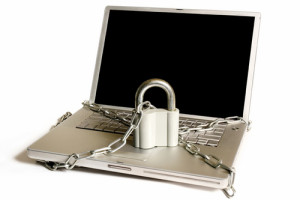Protecting Sensitive Data and Information
November 20, 2012 - 3 minutes read These days theft is not only about losing valued possessions and cash. The opportunities for theft of identities and information are on the rise, making sound data protection and computer security vitally important – especially for those who use the internet for banking, shopping or other activities.
These days theft is not only about losing valued possessions and cash. The opportunities for theft of identities and information are on the rise, making sound data protection and computer security vitally important – especially for those who use the internet for banking, shopping or other activities.
Data and information theft can occur through computer hacking, or from stolen paperwork or other items such as debit/credit cards, cheque books, or identity documents. It can result in loss of privacy, risks to personal security, identity theft, loss or corruption of data or information from a computer system, or theft from bank accounts and credit cards.
Identity theft is a serious issue. If a person manages to steal someone else’s identity, they may have the capacity to empty the other person’s bank account, use their credit card, obtain loans and open accounts in their name and commit a host of other crimes.
With many churches operating in a manner on a day-to-day basis that is similar to businesses, it’s important to also be ‘business-like’ in the protection of sensitive data and information.
Reducing your risk:
- Lock away sensitive personal or financial paperwork and documents in a secure filing cabinet.
- Thoroughly shred any paperwork containing sensitive information that is no longer required, rather than putting it in the recycling or rubbish bin.
- Regularly monitor bank accounts and credit cards and report any suspicious or unauthorised transactions.
- Install a firewall on all computer systems, as well as anti-virus and anti-spyware software.
- Conduct regular scans for viruses and spyware.
- Use passwords for all computer systems, and change these regularly.
- Do not throw ATM or credit card receipts in the bin.
- Use secure sites, especially when doing financial transactions online. These should have ‘https://’ in the browser bar rather than ‘http://’, and display a locked padlock symbol.
- Take particular care with laptops and other portable electronic devices that have data or information stored on them. These devices may be vulnerable to being stolen if left in the car or taken home. You might need to develop a church policy regarding security and the use of portable devices such as laptops.
- To delete unwanted data and information from your computer system, use a ‘disc wipe utility program’, as simply using the ‘delete’ function may not completely eradicate it.
- Unplug the modem when the computer is not in use.
Finally, and very importantly, make sure to do regular computer system backups so you have copies of all your electronic data! These should be stored off-premises in a secure location. Ideally you should do a backup at the end of each day, as it provides a copy of your system data and information in case of loss or corruption.
For related topics see our other cyber security posts here.
Written by Tess Oliver
Tags: data, risk management, security
Recent Comments